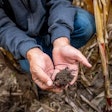
Freshpet’s net sales increased 26.7% to reach US$167.5 million in the first quarter of 2023, compared to US$132.2 million for the first quarter of 2022. However, the refrigerated pet food company experienced a net loss of US$24.8 million, compared with prior year net loss of US$17.5 million during the same quarter. The increase in net loss was due to increased selling, general and administrative expenses, including US$4.4 million in increased media expenditures, higher depreciation and increased production plant costs. Higher sales partially offset this loss. Adjusted earnings before interest, taxes, and amortization (EBITDA) for Freshpet were US$3.0 million. Freshpet, Inc. reported financial results for its first quarter ended March 31, 2023.
Freshpet is a U.S.-based manufacturer of fresh, refrigerated dog treats and food for dogs and cats. The company says all of its meat is 100% farm-raised, according to Petfood Industry’s Top Company’s Current Data.
“Organic sales growth of 27% was balanced across volume (13%) and price (14%), while year-ago trade inventory refill reduced shipment growth by about 200 basis points,” analysts with equity research firm William Blair said in a report. “On a 52-week basis, household penetration grew 7%, reflecting deceleration sequentially as new users (largely high-profit pet-owning households, or “Hippohs”) were offset in part by some exits (among less engaged buyers). However, the buy rate was up 28%, reflecting strong acceleration, as committed users not only stay with the brand but purchase more (i.e., buy rate up significantly more than price contribution).
“In total, Freshpet is approaching household penetration of 10 million, of which Hippohs are now 3.3 million, up 18%. Volume growth has stepped up—from 12% at the start of the quarter to 16% at the end of the quarter—a phenomenon that is expected to continue as merchandising and marketing investments take hold, new fridges are placed and products are introduced, and consumers adjust to higher prices. Management acknowledged some sensitivity among occasional users, something that will need to be closely watched. At the same time, the strategy of targeting Hippohs appears to be working well, and the company’s ability to attract a large set of households should benefit from pet humanization trends and strong value proposition of the offering over time.”
More details about Freshpet’s financial performance
Adapted from a press release:
Freshpet’s gross profit was US$50.8 million, or 30.3% as a percentage of net sales, for the first quarter of 2023, compared to $44.8 million, or 33.9% as a percentage of net sales, in the prior year period. The decrease in reported gross profit as a percentage of net sales was primarily due to increased depreciation expense from the expansion in capacity, increased share-based compensation, and unabsorbed plant cost from the Ennis Kitchen, partially offset by reduced input and quality cost as a percentage of net sales.
For the first quarter of 2023, adjusted gross profit was US$64.4 million, or 38.5% as a percentage of net sales, compared to US$50.6 million, or 38.3% as a percentage of net sales, in the prior year period.



















